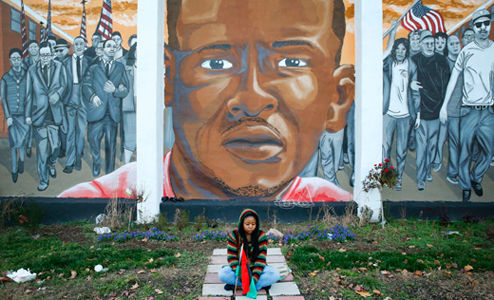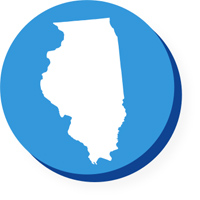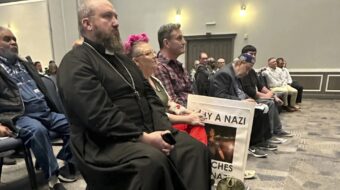
This is part 3 of a 3-part series on the “racial conversation.” You can find here part 1 and part 2.
As Don Draper of AMC’s hit series Mad Men likes to say, “If you don’t like what’s being said, change the conversation.”
When it comes to the seemingly unceasing and certainly unproductive “racial conversation” in America, we clearly need a change. Mouths move and move, and Black bodies pile up. Just last weekend in Chicago, police shootings of highly dubious justification left two more African Americans dead, even in the wake of the revelations of Laquan McDonald’s murder which prompted the scrambling of Chicago’s negligent and corporate-minded mayor, Rahm Emanuel, to promise serious reform.
Then last Monday a grand jury in Cleveland moved not to indict police in the murder of 12 year-old Tamir Rice. Earlier in the month a judge in Baltimore declared a mistrial when jurors failed to reach a verdict in the case against the first officer on trial for the death of Freddie Gray. From these events we have to conclude, I think, that the more things stay the same, well . . . the more things stay the same. And we have to ask, what will it take for Black lives to matter?
Racial justice enriches all lives
Or, more to the point, we have to ask, what kind of world do we have to create that will make Black lives matter? We have to ask this question IF we want a world in which all lives matter. While I have issues with those who challenge the “Black Lives Matter” assertion with the assertion of “All Lives Matter” because this substitution fails to recognize the particular ways Black lives, and the lives of people of color generally, have been specifically devalued in U.S. society, I of course believe all lives matter but believe that if we are going to achieve a society and political economy in which all lives matter we need to address the way “race” functions as one of many critical factors in the U.S. political economic system that devalue human life. We all gain from addressing the myriad ways our world works to discount people and justify their oppression.
It may be that one of the chief obstacles to meaningful transformation toward a humane society is the way the “racial conversation” tends to get framed in the dominant cultural and political discourse, figuring efforts to achieve a state of affairs we might call racial justice as necessitating losses for some rather than gains for all. As a society, we don’t recognize how the operations of “race” in our society hobble us collectively.
Gains not losses
The dynamic of the conversation now seems to position those asserting Black lives matter as somehow asking for something from the dominant culture that would require great sacrifice or economic loss, as though the uncashed check Martin Luther King, Jr. invoked in his famous “I Have a Dream” speech actually entailed a withdrawal from white Americans’ accounts, when what he asked for was payment on the promissory note of equal rights. Discussions of race in the United States that center the concept of white privilege fuel this dynamic, cultivating the perception, indeed the powerful feeling among whites, that the achievement of racial justice in the United States will entail those of the white dominant culture somehow giving something up, losing the benefits of being white. Whether those benefits are ill-gotten or not, the prospect of change that requires having less generates anxiety and resistance, especially in a socio-economic world already characterized by diminishing returns for the working and middle classes.
It’s this kind of talk I find not only unproductive but severely misguided and damaging to our best social prospects. African Americans and people of color generally do indeed have a check to cash, but cashing this check will means gains and not losses, morally and economically, for most Americans.
Frederick Douglass and changing the conversation
So, following Don Draper, I’d like to change the conversation by invoking Frederick Douglass and the analysis he offered in his slave narrative The Narrative of the Life of Frederick Douglass, An American Slave about the relationship between racial liberation-the end of racial labor exploitation-and the larger economic self-interest of society at large, including whites.
At the end of his narrative, when he makes it North to freedom in New Bedford, Massachusetts, Douglass finds himself in a state of wonder, mesmerized by and in virtual disbelief of the wealth that appears before his eyes. He sees African Americans and workers of all types living in homes and is amazed at the absence of poverty and suffering. The reason the wealth and high standard of living all seem to enjoy in the North is such a revelation is that heretofore, in the political economy of slavery, Douglass has witnessed the production of wealth for some as entailing the suffering and degradation of many. Imagining wealth being produced without brutalizing many in the process was impossible for him.
The implicit argument in Douglass’s narrative is that the most efficient and productive economy is actually the most humane economy. Humanity, as opposed to exploitation and oppression of any kind, is the key to creating an efficient economy that produces a high standard of living for all.
Returning to Baltimore
While Douglass’s narrative provides an instructive historical example, interestingly enough, to return to Baltimore where upcoming trials of officers involved in Freddy Gray’s death will keep the nation’s eyes focused, it is worth remembering that Baltimore Orioles COO John Angelos offered a similar analysis last spring in commenting on the mass protest the uprising represented. He pointed out precisely that the economy suffered-meaning it ceased to function efficiently to serve the needs of all-in direct relation to rollbacks in civil and human rights. The devastation of rights, the desecration of humane social practices, he observed, has gone hand in hand with economic devastation. In commenting on the uprising, he focused “neither upon one night’s property damage nor upon the acts” but:
“rather upon the past four-decade period during which an American political elite have shipped middle class and working class jobs away from Baltimore and cities and towns around the U.S. to third-world dictatorships like China and others, plunged tens of millions of good, hard-working Americans into economic devastation, and then followed that action around the nation by diminishing every American’s civil rights protections in order to control an unfairly impoverished population living under an ever-declining standard of living and suffering at the butt end of an ever-more militarized and aggressive surveillance state.
“The innocent working families of all backgrounds whose lives and dreams have been cut short by excessive violence, surveillance, and other abuses of the Bill of Rights by government pay the true price, and ultimate price . . .We need to keep in mind people are suffering and dying around the U.S. . . . poor Americans in Baltimore and everywhere who don’t have jobs and are losing economic civil and legal rights, and this makes inconvenience at a ballgame irrelevant in light of the needless suffering government is inflicting upon ordinary Americans.”
While Angelos does not in any targeted or overt way mention “race” or even specifically talk about the specific situation of African Americans, the context for his comments speaks for itself. He is making clear that the “racial” uprising of African Americans in Baltimore is expressive of the interests of all Americans, or at least working and middle class Americans, if not the “American political elite” he calls out. In avoiding the direct language of “race,” I don’t think Angelos’s point is to privilege “All Lives Matter” over “Black Lives Matter” but to underscore that making sure Black lives matter is the way to make sure that all lives matter.
Racism hurts all
Angelo’s comments underscore that the conversation about “race” in America is not a conversation about securing political rights, social equality, and economic well-being for people of color alone but for all. His words make clear that the deployment of “race” as a system of structured inequality in U.S. society works against the interests of all Americans, save perhaps the political and economic elite.
As we change the racial conversation Don Draper-style, we can’t submerge issues of race into issues of political economy alone but must recognize that when we talk about race we aren’t talking exclusively about the experiences and interests of people of color who have historically endured special exploitation and oppression in U.S. society but about the interests of all. When we have the racial conversation, we are really talking about how to re-organize our society and political economy in the most humane way possible.
The Wire, race and political economy
To return to Baltimore, David Simon’s HBO masterpiece The Wire tells a story about the city that highlights this very point. While the events in Baltimore last spring motivated Nation columnist Dave Zirin to re-assess The Wire and harshly critique it for its lack of representation of the social movements alive in Baltimore fighting for collective change, Zirin’s assessment fails to see the story of human waste and economic efficiency-and its dialectical opposite-that The Wire does tell.
Throughout season one, a predominant image is that of the drug dealers spending their day on an orange couch in the middle of the projects. When they’re not there on the couch, they are using their creativity to outsmart the police, running a drug operation that undermines the health of the community.
In season two, a predominant image is that of under-employed longshoreman sitting on bar stools waiting for work. What binds all these images is that they are symptoms, indeed registers, of an inefficient economy that fails to meet human need and is not designed to make use of all the available human creativity and resources in meeting human need, not serving the destruction of human lives.
As Simon himself has noted, ” . . . that’s what The Wire was about basically, it was about people who were worth less and who were no longer necessary, as maybe 10 or 15 percent of my country is no longer necessary to the operation of the economy.”
Simon’s comments ask us to consider whether it isn’t time to question the way a capitalist economy values people and shapes social relationships. Race is certainly at the center of season one and throughout the series, but in many ways The Wire urges us to see that we have tended to identify as a ” racial” experience or issue is one extending more and more beyond the experience of people of color to everyone. Indeed, Simon notes:
“And kind of interesting in this last recession to see the economy shrug and start to throw white middle-class people into the same boat, so that they became vulnerable to the drug war, say from methamphetamine, or they became unable to qualify for college loans. And all of a sudden a certain faith in the economic engine and the economic authority of Wall Street and market logic started to fall away from people. And they realized it’s not just about race, it’s about something even more terrifying. It’s about class. Are you at the top of the wave or are you at the bottom?”
While I take issue with Simon’s language when he says “it’s not just about race . . . It’s about class,” I do want to suggest that his comments and the story The Wire tells move us to change the racial conversation. It’s not that it’s about class and not just race; it’s that when we talk about race we are already talking about class and talking about a system that impacts all of our lives.
Photo: A mural depicting Freddie Gray at the intersection of his arrest, in Baltimore on Dec. 16. The first trial to determine whether a police officer is criminally responsible for Gray’s death from a broken neck in a police van ended with a hung jury and a mistrial. Patrick Semansky | AP












Comments